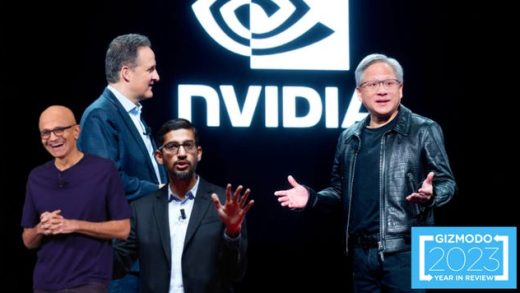If there’s one thing writer/director Rian Johnson excels at, it’s assembling a crew of artists to nail down all those little details when it comes to production design, costumes, and props. While Knives Out had plenty of opulence (and autumnal sweaters), Glass Onion boasts an entire villa decorated with priceless art pieces, including the Mona Lisa herself.
In Glass Onion, billionaire Miles Bron (Edward Norton) has made a deal with the Louvre to borrow the Mona Lisa while the museum is closed for the pandemic. Makes sense, right? No one’s going to museums anyways — might as well get the most priceless artwork known to mankind and keep it around for shits and giggles.
While the film’s mystery unravels, the Mona Lisa sits on the sidelines, idly watching a bunch of frenzied millionaires trying to piece together what happened. Though it seems like a bit of whimsy, the painting is key to the film’s pointed class commentary on billionaires and their obsessions with legacy — a fantasy that relies on massive amounts of intergenerational wealth and privilege, not to mention plenty of support and coddling from others who are less fortunate (i.e. rich).
Who is Edward Norton’s character, Miles Bron?

Credit: Netflix
Miles Bron is a self-styled Tony Stark — a ridiculously rich man with an inflated ego that skews his self-perception into thinking that he’s an entitled superhero. (Sound familiar, Elon?). But unlike Iron Man, who actually does save the world, Miles Bron is just a tech bro chasing after a delusional dream of being the first ever to do something. Like many of our real-life billionaires, his ideas were never actually his own.
How does ‘Glass Onion’ handle the COVID-19 pandemic?
Bron is the CEO and co-founder of a tech company called Alpha, where his latest endeavor is implementing a new alternative energy source he calls Klear, though it’s never been tested. However, we soon learn that it was actually Andi (Janelle Monáe) who came up with the idea of Alpha and who told Bron that Klear was unsafe, resulting in a grueling lawsuit where Bron fabricated evidence to suggest that he was actually the original creator of Alpha and forcing Andi out as CEO.
So, what’s the deal with the Mona Lisa in Glass Onion?

Credit: Netflix
In Glass Onion, the Mona Lisa is a symbol for legacy. The painting serves as a moodboard for Bron’s life, if you will, embodying the end goal he wants to achieve. Throughout the film, Bron regularly mentions that he wants to be remembered in the same breath as the Mona Lisa; he has a desire to be remembered as one of history’s greatest, standing the test of time and joining the world’s best artists and inventors club.
But can that timelessness exist in the 21st century, let alone through a tech billionaire? Not really, because unlike Leonardo da Vinci, whose legacy was established through his unique artistic talent, Bron finds his meaning in what he owns, not what he contributes. He was willing to distribute an untested energy source just for the sake of being the first one to do it. He even owns Paul McCartney’s guitar, which he destroys just for fun. It’s that exact attitude that marks his downfall.
It’s Bron’s obsession with holding titles that don’t belong to him that guides Glass Onion‘s entire arc and mystery. He never was a creator or a genius to begin with, and when Helen (also Janelle Monáe!) destroys everything in the film’s final act — using Klear as an accelerant — the Mona Lisa goes up in flames, granting him his wish in a most ironic way.
Bron will forever be known as “the idiot who destroyed the Mona Lisa,” which circles back to Glass Onion‘s commentary on modern wealth as a vehicle for worldly destruction. Billionaires aren’t actually there to help people or contribute to society in life-changing ways; they just want to own everything and get a gold star for being a model of an American dream that doesn’t exist.
Glass Onion is now streaming on Netflix.












